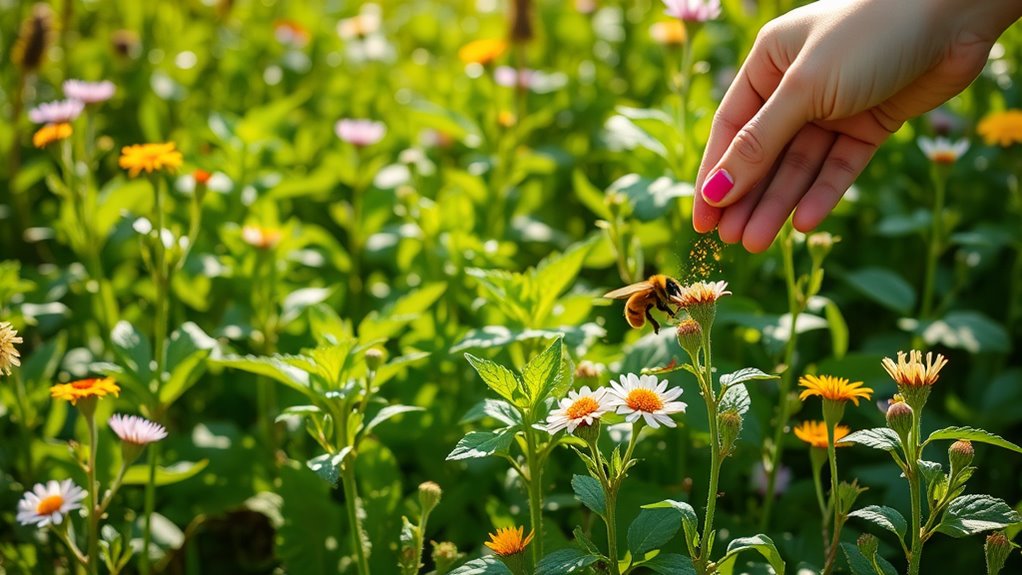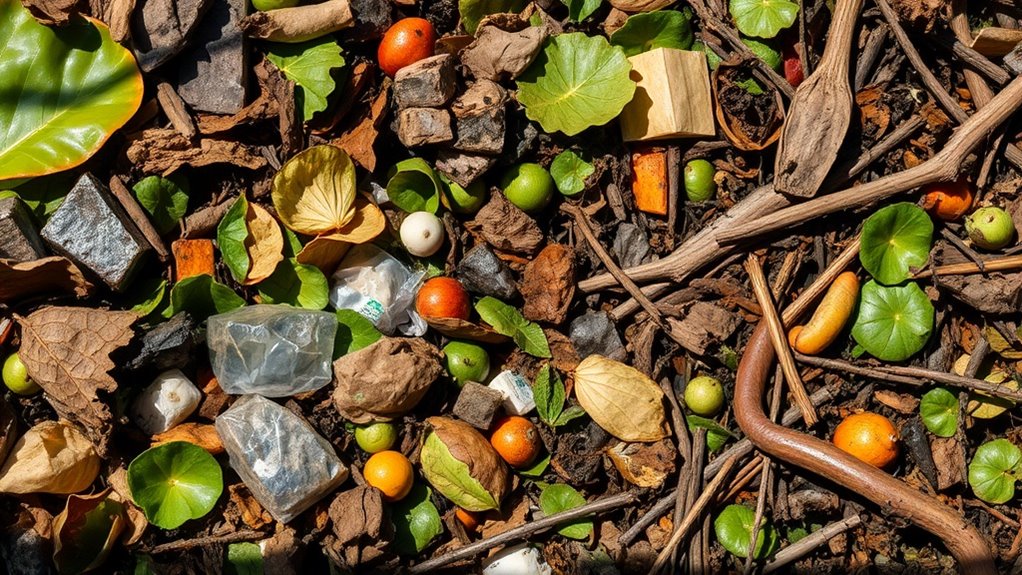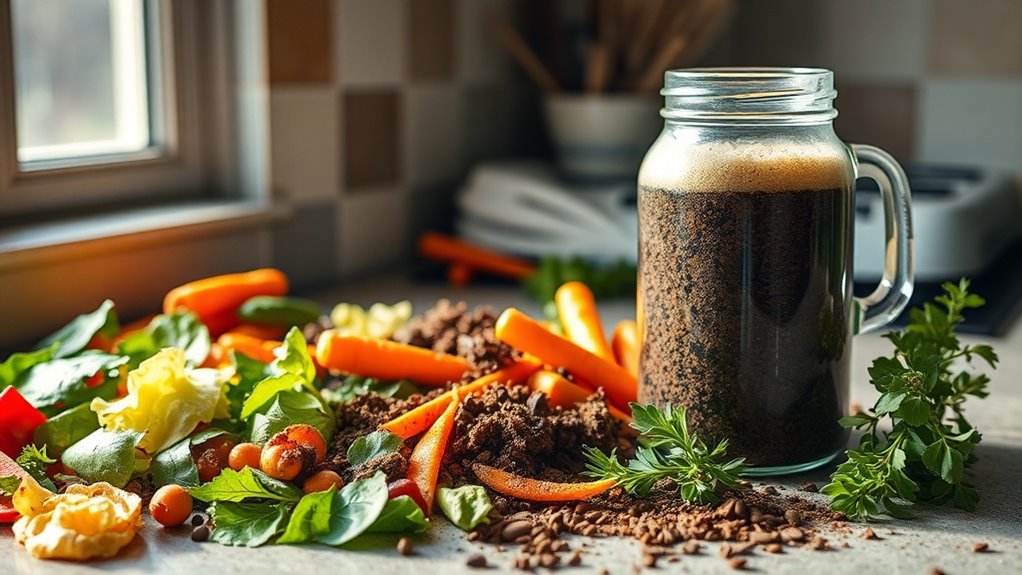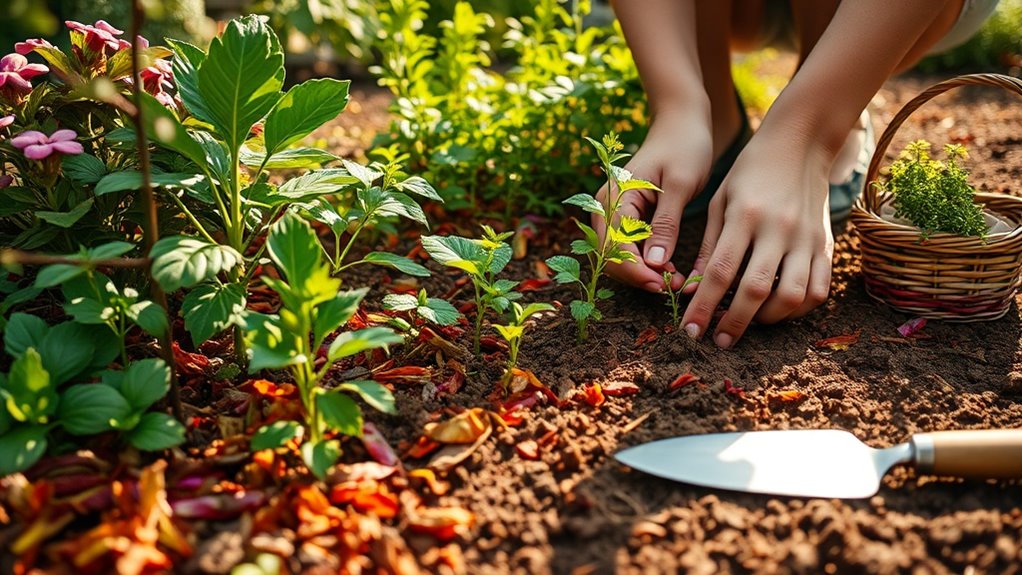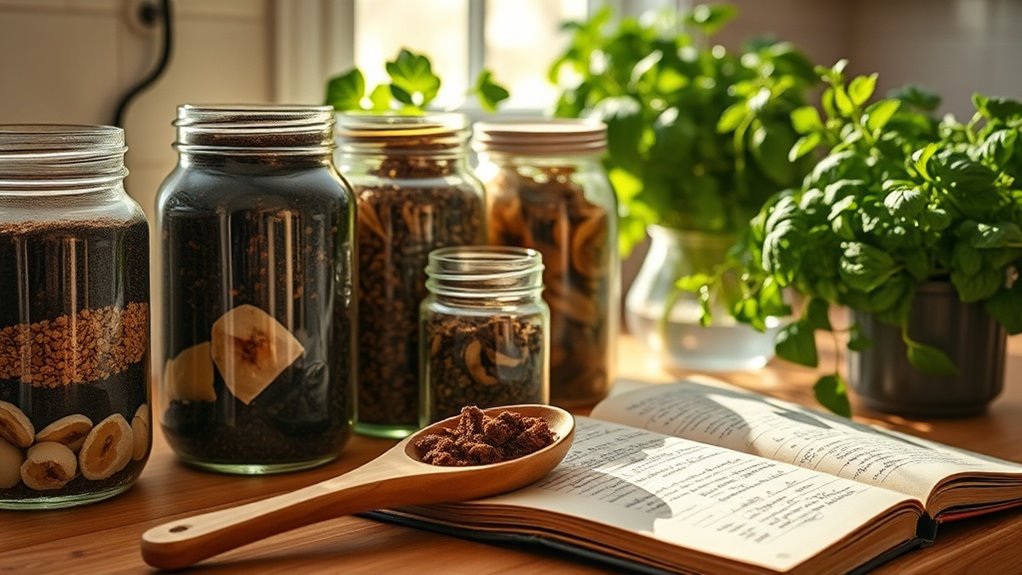Natural Weed Remedies That Won’t Harm Your Plants
Many gardeners wonder if natural weed remedies can effectively control unwanted plants without harming their cherished flora. The good news is, there are several methods that not only target weeds but also support a healthy garden ecosystem. From vinegar to hand pulling, these techniques offer various benefits. Curious about how you can implement these strategies in your own garden? Let’s explore the most effective options together.
Key Takeaways
- Boiling water effectively eliminates weeds without leaving harmful residues, ensuring safety for surrounding plants when applied selectively.
- Corn gluten meal acts as a pre-emergent solution, preventing weed seed germination while enriching soil nutrients for healthy plant growth.
- Mulching suppresses weed growth by blocking sunlight and retains soil moisture, benefiting desirable plants in the process.
- Hand pulling targets specific weeds, allowing for careful removal without harming surrounding vegetation when done correctly.
- Vinegar, when used cautiously, can control weeds; however, it may harm desirable plants if not applied selectively.
Vinegar: A Potent Natural Herbicide
Vinegar, a common kitchen staple, serves as a powerful natural herbicide for those looking to control pesky weeds without resorting to harsh chemicals.
Its acetic acid content makes it an effective option among safe weed killers.
When you apply vinegar directly to the leaves of unwanted plants, it disrupts their cellular structure, leading to wilting and death.
For best results, use a higher concentration, like 20% vinegar, and apply on a sunny day to enhance its efficacy.
Just be cautious—while it targets weeds, it can also harm your desirable plants, so aim carefully for those stubborn invaders! Additionally, vinegar can also deter garden pests that may threaten your plants, making it a versatile solution in your gardening toolkit.
Boiling Water: The Simple Solution
Boiling water is an effective method for eliminating weeds without the use of harsh chemicals. You can apply it directly to the unwanted plants, ensuring safety for your surrounding vegetation by targeting specific areas. This simple technique not only saves you time but also promotes a healthier garden environment. Additionally, it serves as a natural remedy that aligns with eco-friendly gardening practices.
Effective Weed Elimination Method
When it comes to tackling stubborn weeds, you might be surprised to learn that a simple household staple can work wonders.
Boiling water is an effective, eco-friendly method that quickly eliminates unwanted plants. Here’s why it works:
- High Temperature: The intense heat disrupts cell structures in weeds.
- Quick Action: It penetrates the foliage almost instantly, leading to rapid wilting.
- No Residue: Unlike chemical herbicides, it leaves no harmful traces in your soil.
Using boiling water is a straightforward, natural approach to weed elimination that won’t harm your garden’s existing plants. Give it a try and watch those weeds disappear!
Application Techniques Explained
After discovering the power of boiling water as an effective weed elimination method, it’s important to understand how to apply this technique properly.
Start by boiling water in a kettle or pot until it reaches a rolling boil.
Carefully pour the boiling water directly onto the unwanted weeds, ensuring the water saturates the leaves and stems.
Aim for a sunny day, as the heat will be more effective in drying out the plants.
Avoid splashing onto surrounding soil, as this method can affect nearby plants.
Repeat the process as necessary, targeting new growth for optimal results.
Safety for Surrounding Plants
How can you ensure the safety of surrounding plants while using boiling water to tackle weeds?
Start by applying boiling water selectively, targeting only the weeds you want to eliminate.
Here are some tips to keep nearby plants safe:
- Use a precise pouring technique: Aim directly at the weeds, avoiding nearby greenery.
- Choose a sunny day: The heat will dissipate quicker, minimizing the risk of splashback.
- Create barriers: Use rocks or mulch around desirable plants to protect them from the hot water.
Corn Gluten Meal: Preventing Weed Growth
Corn gluten meal is a powerful natural herbicide that can help prevent weed growth in your garden or lawn. It works by inhibiting seed germination, making it an effective pre-emergent solution.
When applied to soil, the proteins in corn gluten meal release compounds that signal developing weed seeds to stop growing. Additionally, using corn gluten meal can also enrich your soil with beneficial nutrients, enhancing overall plant health.
For best results, apply it in early spring before weeds sprout, and water it in lightly.
You’ll not only reduce weed competition, but also enrich your soil with beneficial nutrients.
Salt: A Cautionary Approach
Have you ever considered using salt as a weed killer?
While it can effectively eliminate unwanted plants, you need to approach it with caution.
Salt can damage your soil and nearby plants if used excessively.
Here’s what to keep in mind:
- Salt can dehydrate weeds, causing them to wilt and die.
- Over time, salt accumulates in the soil, leading to nutrient imbalances.
- It can harm beneficial microorganisms, disrupting the ecosystem.
Use salt sparingly and target only specific weeds.
Always test a small area first to avoid unintended consequences.
In addition, consider using natural methods such as mulching or vinegar for a more environmentally friendly approach.
Your garden deserves the best care!
Mulching: A Protective Barrier
Mulching serves as a protective barrier for your garden, offering numerous benefits beyond just aesthetics. It suppresses weed growth by blocking sunlight, preventing those pesky invaders from taking root. Additionally, mulch helps retain soil moisture, reducing the need for frequent watering. As it decomposes, organic mulch enriches the soil with nutrients, promoting healthy plant growth. It also regulates soil temperature, keeping it cooler in summer and warmer in winter. To maximize these benefits, choose materials like straw, wood chips, or shredded leaves. Incorporating water-saving techniques can further enhance the efficiency of your garden and conserve this precious resource.
Hand Pulling: The Traditional Method
While mulching effectively suppresses weeds, another tried-and-true method is hand pulling, which has been used for generations.
This method allows you to target specific weeds without harming your plants.
When you hand pull, you’ll want to focus on:
- Grasping the weed firmly at the base to avoid breakage.
- Pulling slowly to extract the entire root, preventing regrowth.
- Timing your efforts after rainfall or watering for easier removal.
Hand pulling not only keeps your garden healthy but also offers a satisfying connection to the earth. Additionally, removing certain weeds can help promote beneficial weeds that enhance soil quality and support beneficial insects.
Make it a regular part of your gardening routine for the best results.

